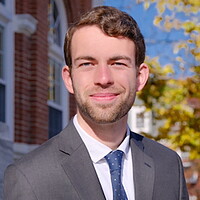Why are Indonesia and others moving their capitals? Three questions.
Loading...
In December 2019, Indonesian President Joko “Jokowi” Widodo stood atop a hill overlooking rugged terrain on the eastern side of the island of Borneo. It looked like the middle of nowhere. But he planned to make that isolated spot hundreds of miles from Jakarta part of his country’s glittering new capital by 2024.
Indonesia’s parliament greenlighted the move in January, making Indonesia the latest in a long line of countries that have decided to ditch bustling capitals for more bucolic digs.
However, some worry that these brand-new, often far-flung, capitals might create more problems than they solve.
Why We Wrote This
Many countries in recent history have moved capital cities or built new ones. Such projects protect government institutions not only from rising seas and traffic, but also from aggrieved citizens.
Which countries have moved capitals?
Dozens of countries around the world have relocated their capitals over the past century. Many of these moves have been like Indonesia’s: to new cities designed specifically to serve as capitals, and established in relatively undeveloped areas. Nigeria, for example, left coastal Lagos for Abuja in 1991, escaping Lagos’ overcrowding and seeking a neutral, central location in a country riven by ethnic and religious divisions.
Egypt’s military dictator is currently building a new capital in the desert outside Cairo.
Why is Indonesia relocating its capital?
Publicly, Jokowi’s government has often attributed the move to Jakarta’s epic traffic jams and the fact that the metropolis of 10 million is sinking into the sea at a rate of about 1 to 6 inches a year.
But those problems are used as “more acceptable” justifications that the relocation won’t actually solve, says Edbert Suryahudaya, a researcher at the Centre for Strategic and International Studies in Jakarta.
Instead, the capital relocation is part of the president’s vision to modernize the country and redistribute political and economic power across the archipelago away from Jakarta, Mr. Suryahudaya says.
This is not unique to Indonesia. Governments looking to build new capitals have often cited environmental concerns as cover for more complex motives like nation building, says Ed Schatz, a Central Asia specialist at the University of Toronto.
Former Kazakh President Nursultan Nazarbayev used his country’s 1997 capital relocation from Almaty to Nur-Sultan – ostensibly due to earthquakes and smog – to shut out rivals, curry favor with separatism-inclined ethnic Russians in the country’s north, and create “a giant money laundering opportunity,” Professor Schatz says.
New capitals often do reduce the threat of rising seas, earthquakes, and hurricanes, at least to the government. They can also temporarily boost the national psyche as symbols of modernity and pride.
“But I think the charm has to wear off,” Professor Schatz says.
What are the costs?
New capitals are expensive. Indonesia’s comes with a $32 billion price tag.
Though the government contends investors and state-owned enterprises will bankroll 85% of the project, Mr. Suryahudaya says spending on a glitzy new capital as the country still struggles to recover from the pandemic just “isn’t ethical.”
“We have a lot of more pressing issues,” he says.
Beyond the budget, researchers say the construction of the new capital will release tons of CO2 into the atmosphere, threaten endangered orangutans, and displace 20,000 Indigenous people who already live in the area.
Add political concerns to that list, says Johns Hopkins University Professor Filipe Campante. In isolated capitals, autocrats rarely have to fear the wrath of street uprisings far from the madding crowd, so measures of corruption climb while measures of democracy fall, his research shows.
For example, during the recent unrest against Kazakhstan’s authoritarian regime, protesters in opposition-minded Almaty torched the presidential palace – the old one, that is. The new palace, located hundreds of miles northwest, was safe.
Even in democracies like Indonesia, Professor Campante’s research shows people think less about politics in remote capitals where large protests are harder to muster and robust press coverage is less likely.
Watchdogs, Professor Campante says, will need to “bark louder, because they’re going to be barking from farther out.”









